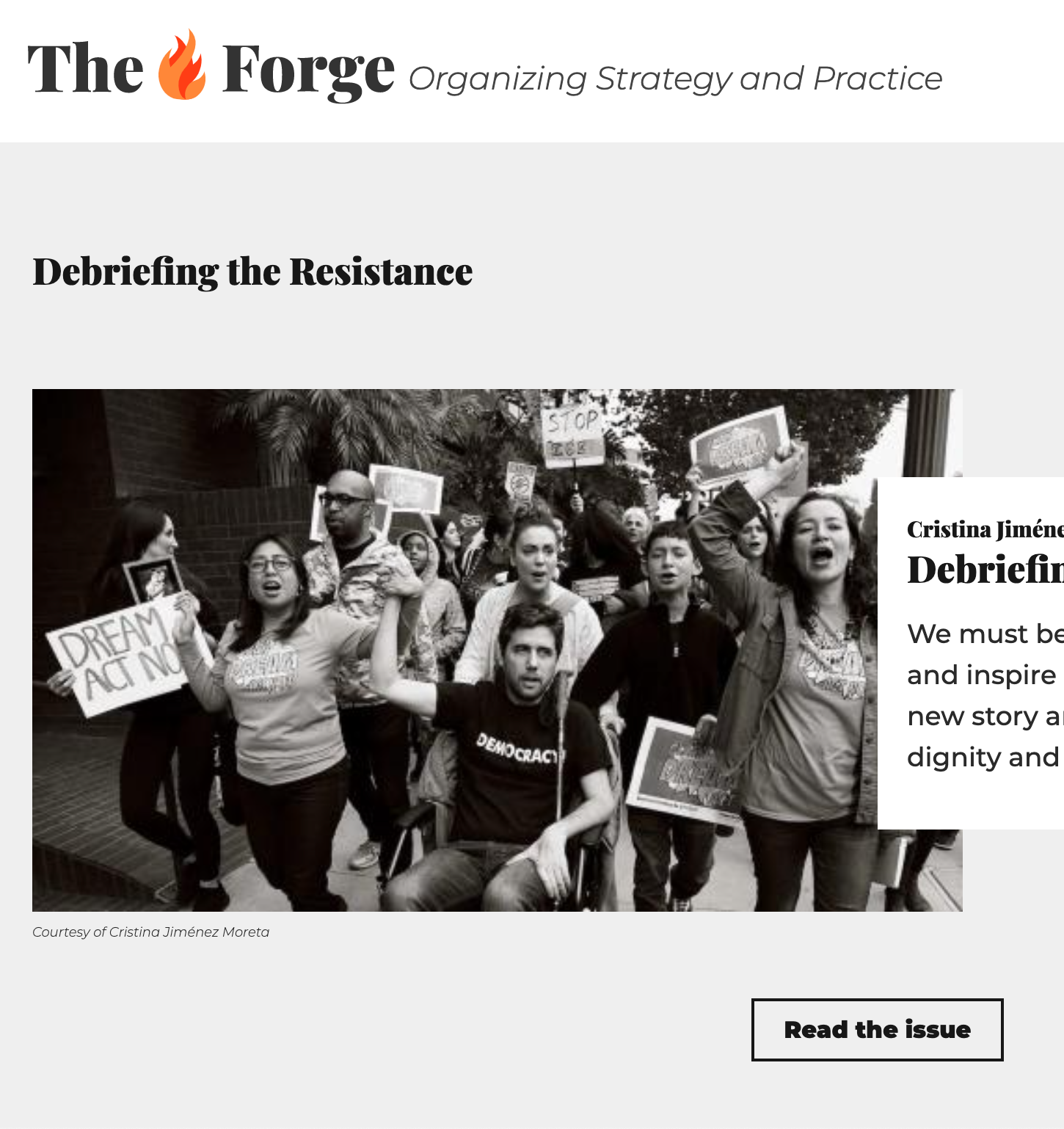Call for Proposals
Highlighting Contemporary Youth Struggles for Human Rights, Justice, and Democracy Across the World
forge: Organizing Strategy and Practice
Alongside the SNF Agora Institute at Johns Hopkins and The Research Hub at the University of Colorado, The Forge: Organizing Strategy and Practice is planning two special issues on youth organizing, in the United States and internationally. We are currently seeking proposals for articles for the international youth organizing issue.
special issue
Highlighting Contemporary Youth Struggles for Human Rights, Justice, and Democracy Across the World
Throughout history, young people have paved the path to progress through their ability to see the world and democracy for what they can be, rather than what they are today. In the past decade, we have seen student movements for human rights, democracy, and educational access in locations Chile, Hong Kong, South Africa, and Brazil. These examples of youth organizing and social movements — as well as others throughout the world — bear important lessons for all of us fighting for human rights, grassroots democracy, and social justice. This international issue will provide an opportunity to spotlight voices that are too often marginalized from conversations about effective, progressive organizing. To this end, the articles should be aimed at other organizers, focusing on specific strategies, best practices, and lessons learned. A note on terminology: We define organizers as those working to build collective power through leadership development, one-on-one conversations, canvassing, direct actions, and/or coalition building. Other terms that may be more relevant in your context include activism, movement-building, and public protest. We welcome your use of terms that fit your context.
Questions we hope the issue addresses (each article might only address one of these)
What models or theories of democracy (or organizing) are you drawing on? How are you building on Indigenous traditions or practices to engage other young people?
What strategies and tactics have you used to organize across national borders? What lessons have you learned?
What role does digital media and technology play in your efforts to mobilize people and build power?
How do you think about issues of self-care and sustainability in your organizing?
How are you organizing in the face of oppressive governments?
How are you working in multigenerational spaces? In what ways has intergenerational organizing been successful, and what challenges are there in collaborating across generations?
How do you take on policies that are determined by entities outside of your government (e.g., multinational corporations, foreign governments)?
How do you think about tradeoffs between pushing for change from inside or outside of the system?
How do you fund your work? How do you deal with resource constraints? Do you rely on western philanthropy? How do you think about the relationship between fundraising and building political power?
What do productive collaborations look like between activists and university researchers?
How are you navigating issues of physical safety when organizing protests or mobilizing against elites?
How to submit
The issue will consist of 10-12 articles of 1,000-2,000 words each. Please send an abstract of no more than 500 words to Scott Warren at SWarren@jhu.edu by June 18. The abstract should contain the authors, the focus of the proposed article, and why the article will be useful to organizers across the world.
Eligibility:
One author must be based outside of the US and working in or leading an activist group or movement; a co-author can be a university-based scholar (from anywhere)
Articles should be in English

